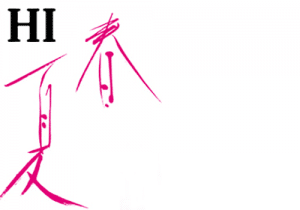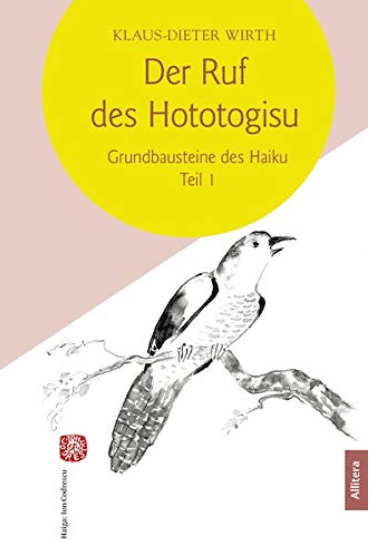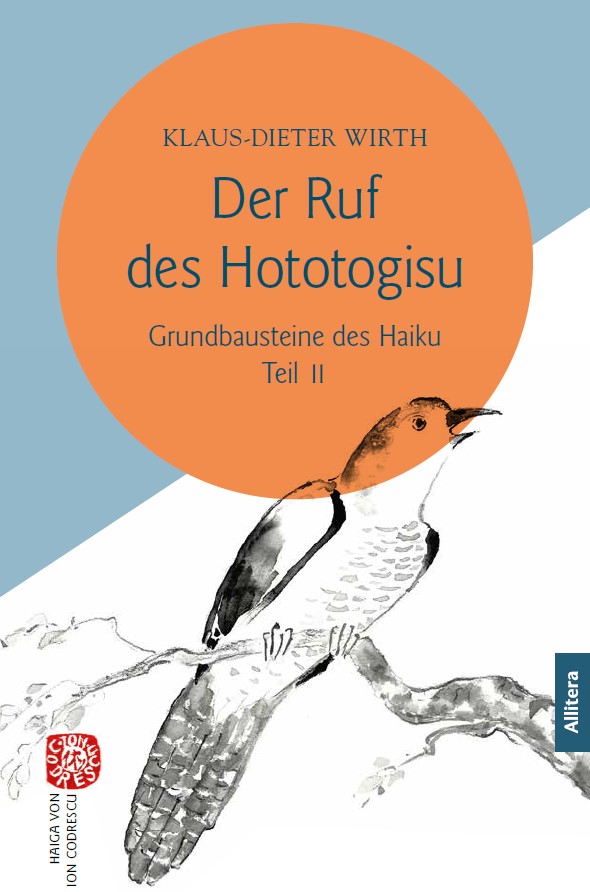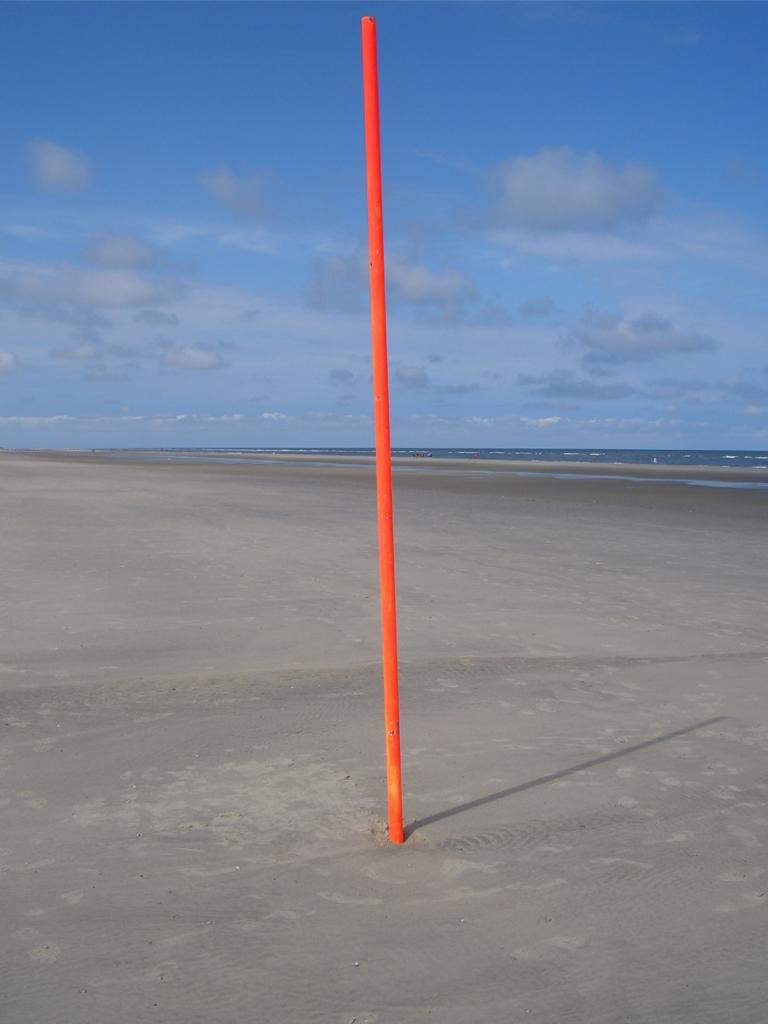Es wurden insgesamt 207 Haiku und 52 Tanka von 73 Autorinnen und Autoren für diese Auswahl eingereicht.
Einsendeschluss war der 15. April 2017. Diese Texte wurden vor Beginn der Auswahl von mir anonymisiert. Die Jury bestand aus Valeria Barouch, Claus Hansson und Helga Schulz Blank. Die Mitglieder der Auswahlgruppe reichten keine eigenen Texte ein.
Alle ausgewählten Texte – 39 Haiku und 10 Tanka – werden in alphabetischer Reihenfolge der Autorennamen veröffentlicht. Es werden bis zu maximal zwei Haiku und zwei Tanka pro Autor/in aufgenommen.
„Ein Haiku/ein Tanka, das mich besonders anspricht“ – unter diesem Motto besteht für jedes Jurymitglied die Möglichkeit, bis zu drei Texte auszusuchen (noch anonymisiert), hier vorzustellen und zu kommentieren.
Der nächste Einsendeschluss für die Haiku/Tanka-Auswahl ist der 15.07.2017.
Jede/r Teilnehmer/in kann bis zu fünf Texte – davon drei Haiku – einreichen. Mit der Einsendung gibt der Autor/die Autorin das Einverständnis für eine mögliche Veröffentlichung auf http:/www.zugetextet.com/ .
Jedes Mitglied der DHG hat die Möglichkeit, eine Einsendung zu benennen, die bei Nichtberücksichtigung durch die Jury auf einer eigenen Mitgliederseite veröffentlicht werden soll.
Eingereicht werden können nur bisher unveröffentlichte Texte (gilt auch für Veröffentlichungen in Blogs, Foren, sozialen Medien und Werkstätten etc.).
Bitte keine Simultan-Einsendungen! Es gibt ab jetzt die Möglichkeit, die Haiku/Tanka selbst einzutragen:
DHG- Webseite /Aktivitäten/Haiku-Tankaauswahl/
Onlineformular
Oder bitte senden an: auswahlen@deutschehaikugesellschaft.de
Da die Jury sich aus wechselnden Teilnehmern zusammensetzen soll, möchte ich an dieser Stelle ganz herzlich alle interessierten DHG Mitglieder einladen, als Jurymitglied bei kommenden Auswahl-Runden mitzuwirken.
Petra Klingl
Ein Haiku, das mich besonders anspricht
tangonacht
lange noch
die glutHelga Stania
Mit sehr wenigen Worten wird sehr viel ausgedrückt. Ich höre die Musik – sehe den Mann mit dem Akkordeon, spüre die Erotik, das Knistern, die Stimmung in dem Saal und wie sie noch lange anhält, mit nach Hause genommen wird.
Ausgesucht und kommentiert von Helga Schulz Blank
Nachtzug
in jedem Fenster
ein anderer TraumEva Limbach
Auch wenige Silben, die nachhallen. Ich sehe Menschen im Nachtzug wie sie ins Dunkle schauen, kaum etwas sehen, aber vor ihren Augen sehr viel erscheint. Sie grübeln ein wenig, lächeln, sind mit sich beschäftigt, vieles zieht an ihnen vorüber, Gegenwärtiges und Vergangenes – jeder sieht etwas anderes.
Ausgesucht und kommentiert von Helga Schulz Blank
langstrecken
auf der autobahn
gedankenreisenSylvia Bacher
Es ähnelt ein wenig dem Nachtzug – jemand ist alleine im Auto, fährt sehr weit – frisst Kilometer um Kilometer, schaut auf das Geschehen auf der Straße, während er in Gedanken vieles überlegt, vielleicht sogar Probleme löst oder nur an Schönes denkt, das kann jeder für sich selbst festlegen – es ist offen. Die Gedanken sind frei, jeder kann damit machen, was er will, gefällt mir gut, steckt viel darin, ist gut ausgedrückt.
Ausgesucht und kommentiert von Helga Schulz Blank
erster Kuss
Kirschblüten schenken
sich dem WindAnke Holtz
Dieses zarte Frühlings-Haiku hat mich beim ersten Lesen sofort angesprochen. Die Kirschblüten (jap. Sakura) sind eines der wichtigsten Symbole der japanischen Kultur. Sie stehen für reine Schönheit, Aufbruch und Vergänglichkeit.
Den ersten Kuss einer neuen Liebe sehe ich als einen Aufbruch in eine spannende und schöne Zeit. Am Anfang einer neuen Liebe weiß man allerdings nicht, ob diese Liebe ewig dauern wird, man fragt auch gar nicht danach. Dennoch gibt man sich leicht und sorgenfrei dieser Liebe hin. Die Liebenden sind wie Kirschblüten, die sich dem Wind schenken und verwehen.
Sakura steht aber noch für einen weiteren Aspekt, an den ich denken musste. Die Kirschblüte ist das Zeichen der damaligen Samurai in Japan, das die Begriffe Ahnenkult, die Seele Japans und den Ehrenkodex der Samurai in sich vereinigt. Stichblätter damaliger Schwerter waren oft kunstvoll in der Form einer Kirschblüte gefertigt.
Dieses Haiku erweckt in mir somit mehrere schöne Bilder und Gedanken. Für mich ein gelungenes Haiku.
Ausgesucht und kommentiert von Claus Hansson
im Klangrad
ein Marienkäfer berührt
die StilleRuth Karoline Mieger
Klangrad? In meinem Wortschatz gibt es Klangschalen, Klanghölzchen und Klangstäbe, aber was ist ein Klangrad? Das waren meine ersten Gedanken beim Lesen des Haiku, und schon hatte es mich gefesselt. Im Internet fand ich dann die Lösung. Klangrad ist ein Lerntool für das aufmerksame und genaue Zu- und Hinhören.
Mit dieser Erklärung weiß ich zwar jetzt, was ein Klangrad ist, aber das Haiku bleibt für mich in der Deutung offen. Bietet das Klangrad das Geräusch eines Marienkäfers? Was für ein Geräusch könnte ein Marienkäfer wohl machen? Oder hat beim konzentrierten Lernen mit dem Klangrad den Lernenden oder die Lernende tatsächlich ein Marienkäfer berührt?
Das Haiku hat mich in seinen Bann gezogen, ich habe etwas Neues gelernt und ich kann das Haiku in mehrere Richtungen deuten. Für mich ist es daher ein gelungenes Haiku.
Ausgesucht und kommentiert von Claus Hansson
Sonnenuntergang
die Fensterrose
opfert ihren GlanzErika Uhlmann
Wer kennt das Stillleben nicht, eine Rose vor dem Fenster, deren leuchtende Farben beim Untergang der Sonne langsam verblassen. Aber ist das alles, was in diesem Haiku an Assoziationsmöglichkeiten steckt?
Fensterrosen finden sich vornehmlich in gotischen Kirchen und sind sehr große, farbig verglaste Fenster mit Maßwerkfüllung. Das ist es wohl tatsächlich, was dieses Haiku ausdrücken möchte. Die Farben erstrahlen im Licht der Sonne, das Fenster wirkt machtvoll, schön, beruhigend und harmonisch. Die Kirche wird durchflutet vom Licht. Beim Sonnenuntergang verliert die Fensterrose langsam ihre Farbenpracht, Dämmerung – aber nicht Dunkelheit – zieht in die Kirche ein.
Für mich ist es ein gelungenes Haiku, da ich zwei unterschiedliche Bilder vor meinem geistigen Auge aufsteigen sehe und über das Wort „opfern“ zusätzlich noch weiter in den Abend hinein meditieren kann.
Ausgesucht und kommentiert von Claus Hansson
Eckkneipe –
ihre Trauerränder zum
Gruß aus der KücheTaiki Haijin
Dieses Haiku hat mich zum Schmunzeln gebracht. Es ist von der Art, die vor meinem geistigen Auge sofort einen Film auslöst.
Drehbuch: Feierabend, Gast besucht seine Kneipe, um sich mit einem guten Essen für den arbeitsreichen Tag zu belohnen und ein Bier zu genießen. Er bleibt beim Tresen stehen, da die Köchin soeben Gerichte durchreicht und ihm freundlich zuwinkt. Da passiert es, sein Blick bleibt an ihren Händen hängen.
Werbespot: Nach der Bar auf zur Nail Bar – Wenn ihre Nägel trauern, wir malen Blümchen, sie werden’s nicht bedauern.
Drehbuch: Im Kopf des Gastes jagen sich Gedanken: „Hat sie immer solche schwarzen Nägel? War sie eben im Garten und hat Kräutchen ausgegraben? Du meine Güte, die haben ja gar keinen Garten.“ Gast bleibt für ein Bier, geht nach Hause und kocht selber.
Ende
Trauerränder sind sich nicht alle gleich. Es gibt die – sagen wir mal – die sauberen, jene, die man notgedrungen bei handwerklichen Arbeiten erwirbt und denen man danach mit Seife und Bürste zu Leibe rückt. Dann gibt es jene, die sich an Orten herumtummeln, wo sie nichts zu suchen haben und die in uns zwiespältige Gefühle hinterlassen.
Doch mir scheint, dass wir die zweite Sorte immer weniger zu sehen bekommen, dafür immer häufiger farbenprächtige, lange Kunstwerke aus Nagelstudios. Wie man auch nicht jedem Gaul ins Maul schaut, wollen wir auch nicht unbedingt wissen, wie es unter der Blumenwiese oder dem Sternenhimmel ausschaut.
Da flößt mir dieses Haiku einen weiteren Gedanken ein: Was passiert mit den ausdruckvollen umgangssprachlichen „Trauerrändern“, wenn Nail Bars sich immer weiter ausdehnen und handwerkliche Arbeitsplätze immer rarer werden? Genau! Dieser Ausdruck für schmutzige Nägel ist bedroht. Es wird Zeit, Artenschutz für ihn zu beantragen. Der Leser möge jetzt nicht denken, ich mache mich lustig über ihn. Es gibt ein Lexikon für bedrohte Wörter und ein Internetforum, wo man diese anmelden kann. Nun ich hab’s getan, man weiß ja nie wie weit der Tag entfernt ist, wo es keine schmutzigen Nägel mehr gibt.
Ausgesucht und kommentiert von Valeria Barouch
Die Auswahl
Der Morgen danach.
Wünsche mir verzeihen zu können
IrgendwannKlemens Antusch
schnürlregen
der kindheit
lesetageSylvia Bacher
langstrecken
auf der autobahn
gedankenreisenSylvia Bacher
Abend zu zweit
Schaumblasen knistern
im BadewasserChrista Beau
warten …
mein Herz schlägt noch
in einem anderen LebenGerd Börner
Rheinpromenade
ein Stadtstreicher
kühlt seine FüßeClaudia Brefeld
Im Rosengarten
ihr Duft
im VorübergehenHorst-Oliver Buchholz
noch eine Runde
im Kreisverkehr
der KirschblütenwindSimone K. Busch
Kleinkind im Zoo –
am aufregendsten
das frei herumlaufende Huhn.Reinhard Dellbrügge
Streitgespräch –
das letzte Wort hat
die StilleFrank Dietrich
Kirschbäume blühen
das Lied der Amsel erklingt
endlich ist FrühlingGretlies Gehrts
nächtlicher bahnsteig –
leise schwebt heimweh
über den gleisen …Ruth Guggenmoos-Walter
Eckkneipe –
ihre Trauerränder zum
Gruss aus der KücheTaiki Hajin
Sommerschnitt
mein Schatten
mir fremdGabriele Hartmann
anemonenseen
weiß flutet
WälderMargarete Hihn
gepresste Vergissmeinnicht
im Tagebuch
fehlen SeitenAnke Holtz
jeden Frühling
dieses Wort –
BuschwindröschenAnke Holtz
der Mirabellenbaum
ganz in Weiß,
ein flüchtiger TraumAngelika Holweger
Die Federn aufgestellt
treibt der Schwan im Wind –
Warum nicht mal segeln?Reinhard Lehmnitz
Nachtzug –
in jedem Fenster
ein anderer TraumEva Limbach
Auf dem Marktplatz.
In der Schale des Bettlers
Wasser für den Hund.Sigrid Mertens
im Klangrad
ein Marienkäfer berührt
die StilleRuth Karoline Mieger
sie hält ihn fest
bis ins Heim
den PlüschlöwenRuth Karoline Mieger
Venussichel
kaum hörbar ihr Wiegenlied
im FrauenhausEleonore Nickolay
gegen atomstrom
der brüchige aufkleber
an der kühlschranktürSonja Raab
mehlige Hände
der zerkratzte ehering
am waschbeckenrandSonja Raab
Felder beginnen
höher zu steigen, hier und dort
brandet schon MohnRainer Randig
Winter im Hof
die Kinder treten Blumen
in den SchneeRita Rosen
mit zitternder hand
malt sie sich den frühling her
die frau im rollstuhlSofia Schlief
das springende
Lamm weiß nichts
von OsternAngelica Seithe
tangonacht
lange noch
die glutHelga Stania
Sonnenuntergang
die Fensterrose
opfert ihren GlanzErika Uhlmann
Grenzüberschreitung
Privatallee der Mönche
GenießenRuth Wellbrock
Der Storch im Aufwind –
über Kirschblütenmeeren
federt HochspannungDagmar Westphal
gedenkkreuz
unten das rauschen des bachs
der sein leben nahmPeter Wißmann
die Seemuschel …
ich höre das Jauchzen
der Enkel
damals am Meer
waren sie KinderChrista Beau
die Form des Windes
gefangen in den Weiden
am Ende des Traums
bin ich immer der Junge
der ich binTony Böhle
zartheit
der toten hände
geöffnetes fenster …
ob sie noch einmal winken werden
ganz unmerklich …Ruth Guggenmoos-Walter
Backfischgeburtstag –
in der Küche singt sie
falsch auf Englisch
Krame in Gedanken aus
dem alten TagebuchTaiki Haijin
mit steifen Beinen
stakst er vorbei am Haus
der Jugendliebe
aus dessen Fensterhöhlen
ihm Gardinen winkenGabriele Hartmann
Vorm Holstentor
die fröstelnde Braut
im luftigen Hochzeitskleid
Er zieht ihr
den Schleier vors Gesicht.Annelie Kelch
Pusteblumen
gewachsen auf der Grenze
unserer Gärten –
Wind aus dem Osten
Wind aus dem WestenEva Limbach
dieses Wort
gefallen am Tisch
nebenan
weiß immer noch nicht
ob ich’s behalten sollEva Limbach
trug der wind ihn mir zu
den duft des parfüms
meiner freundin von einst?
beides gibt es nicht mehr –
woher dieser duft?Theo Schmich
die Nachtigall
im verwilderten Garten
schwach mischt sich
ihr Lied in den Geschmack
eines GranatapfelsHelga Stania







